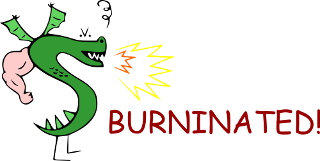This tag has been burninated. Please do not recreate it. If you need advice on which tag to use, see the answer below. If you see this tag reappearing, it may need to be blacklisted.
The fact that the deep tag exists sank in me recently, but it is in a state that I believe does not positively contribute to the site. It currently contains the following description:
Anything related to so-called deep operations on recursive data structures, such as trees. A deep operation traverses the entire data structure, in contrast with "shallow" operations that only affect its "first level". For example, a deep-copy operation on a directory tree would copy the entire tree instead of copying only the content of the root directory.
However, the tag has actually been misused to refer to anything "deep", rather than just for questions about deep operations on (recursive) data structures. There are also a few cases where the question was about deep learning, but did not include the deep-learning tag as well. Given the exaggeratedly broad context of this tag, as well as the difficulty of keeping the tag self-contained to one subject (deep operations could also mean anything nonetheless), I propose we put it six feet under.
- Does it describe the contents of the questions to which it is applied? and is it unambiguous?
As a very common adjective, it does not accurately describe what it relates to. It must be always accompanied by some other concept, such as copy. The qualified subject might not even have a dedicated tag, making deep pretty much confusing.
- Is the concept described even on-topic for the site?
The depths of on-topicness may vary. It depends on the rest of the question rather than this particular tag. Example, if it's used for deep learning questions, there's a significant chance that they're just bad (examples: [1], [2]).
- Does the tag add any meaningful information to the post?
It's occasionally been used for questions already tagged with deep-learning, in which case it is redundant. Other than that, the information it adds is misleading because the tag does not directly bind to its context.
- Does it mean the same thing in all common contexts?
No. To name a few:
- It can mean structured data with an arbitrary depth, usually attainable with recursiveness (we have recursive-datastructures), and operations which are applied on them (for a deep copy, deep-copy exists);
- In deep learning, this relates to deep neural networks, which are artificial neural networks containing a large number of layers, thus giving them depth (see deep-learning);
- It was used to refer to deep linking (for which we have deep-linking).
- It has also been used to mean how deep a certain stack trace goes, which is arguably a bit pointless here;
- One particular question included it because of Deep Canonical Correlation Analysis (CCA), which is purely about statistics and machine learning.

/deep/combinator used in CSS encapsulation, though a quick search only returns three results that are actually tagged with deep.deep magicuntil today.